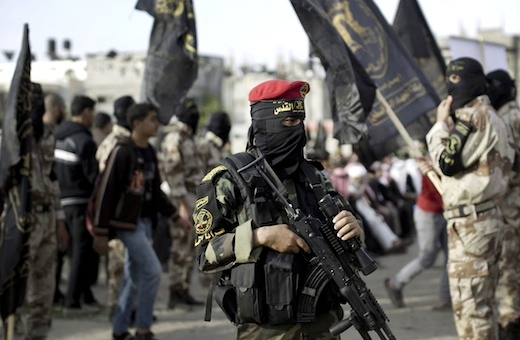It is a mark of the uncertainty of our policy in the Middle East that just over a year ago Parliament was recalled to debate whether to launch military strikes in aid of rebels in Syria. This year, it has been recalled to discuss whether the RAF should join the strikes against the rebels in Syria — or, at least, the section of them that now call themselves ‘the Islamic State’. It is a sobering thought that, had last year’s vote succeeded, Damascus might have joined Raqqa, Mosul and Tikrit among the cities now being run by this pitiless band of barbarians.
Michael Fallon, the Defence Secretary, tells James Forsyth on page 29 that Parliament should have the ‘courage’ to support military action. This is not quite right: it was foresight, rather than cowardice, that informed the vote against intervention. The Prime Minister failed to make the case for war or to assure MPs that he had thought it all through. Specifically, he failed to answer the concerns of those troubled by the fact that some of the Syrian rebels seemed, if anything, worse than Bashar al-Assad’s regime. A failure of judgment on the Prime Minister’s part should not be confused with a failure of nerve in Britain or its parliamentarians.
The case for action now is clear and overwhelming. Public support is rising, but there are legitimate concerns. Our military is in an ever weaker position to take action, due to the relentless cuts forced through by the Chancellor. Operational concerns aside, the question that arises now is the same as that which gave the Commons pause last year: what might British intervention actually achieve?
President Obama’s decision to lead a coalition of Arab countries in striking Islamic State positions is crucial to making the point that this is the Islamic world — not just America — confronting a problem that has grown in its midst. Saudi Arabia and Iran are united in the need to crush the Islamists. The US has the firepower and the F-22s stationed in the United Arab Emirates; the Arab world is driving the need for action.
The first Gulf war provides a better model for a response to Isis than does the second. George H.W. Bush made painstaking efforts to build an Arab coalition to help eject Saddam from Kuwait. It is easy to overlook the fact that in 2003 there were plenty of leaders of Islamic countries who welcomed the overthrow of Saddam. But they did not need to put their heads above the parapet, because Blair and Bush were prepared to do the job without assistance and backing. Such was the vanity of Tony Blair that he seemed to relish the lack of international support. He was alarmed to learn that the US intended to start the invasion without Britain, and pressed hard to join the fight.
Blair was then informed not only by a desire to help liberate Iraq but by his own foreign policy: for Britain to project its influence in the world through its status as First Friend of the United States. This is a logical strategy, especially when Britain’s military is now so rundown as to preclude any serious expeditionary warfare on its own terms. But having a rush of western countries helping America invade Iraq in 2003 created the impression of western imperialism. And worse, after being asked to take Basra, Britain was unable to keep the peace there — leaving the city’s residents to be picked off by Shi’ite death squads. The city had to be reoccupied by the new Iraqi army.
As the West now prepares to leave Afghanistan to the Taleban, its reputation for regime change has been tarnished. Far better to encourage the Arab world to confront their own problems. The need to crush the Islamic State is a rare cause around which the majority of Sunnis and Shi’ites can unite. Arab leaders fear the rise of Isis and would welcome its enforced demise. Wisely, the US has persuaded them to stand up and contribute to that demise.
So far the US forces have attacked the Islamic State in Iraq in response to an invitation from that country’s government. In Syria, Obama has rightly not attempted to coordinate his attacks with Assad. The White House now believes it has other fish to fry in Syria, and this week attacked the Khorasan network, another group of Syrian jihadis near the Turkish border. The message coming from America is now reasonably clear: we will help with air strikes on Isis and other groups that threaten world peace, but it is up to regional forces to take advantage on the ground. This is the military version of nudge politics: the role of the air strikes is to elbow Isis’s local enemies into action. It is an enterprise which Britain should feel confident to join, and to contribute in whatever way we can.
In the campaign against Colonel Gaddafi, Britain was able to contribute seven of the 228 Tomahawk missiles fired towards Tripoli — Uncle Sam provided the rest. There will probably be a lot of grandiose rhetoric from the Prime Minister in the next few days, but this is a mission that Britain is following rather than leading. That’s not necessarily bad news: it is high time that the Arab world dealt with its own problems.





Comments